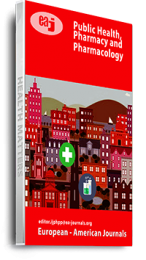The study examined the effect of health education interventions on knowledge of malaria prevention among pregnant women in selected hospitals in Oyo State, Nigeria. The research design adopted for this study was the quasi-experimental design. The population of this study was pregnant women who were attending antenatal clinics in the selected health care facilities in Oyo State, Nigeria. The sample size formula was used to derive 80 respondents. A multi stage sampling procedure was used to select the respondents for the study. The instrument used for the pre and post-intervention was a structured questionnaire. The face and content validity of the instrument was ensured by experts in Public Health. The collection of data was done in three phases: the baseline or pre-intervention phase which was for one week; the immediate post-intervention was for eight weeks (intervention was between the 3rd to 10th week), and the third phase which was the outcome evaluation at the 12th week follow up. Descriptive and inferential statistics were used for data computation. The result revealed that respondents’ knowledge on malaria prevention among pregnant women attending antenatal clinics in selected hospitals was low at the pre-intervention stage for both the experimental group and the control group. However, the knowledge increased significantly at the immediate post intervention and at the 12th week follow-up for the experimental group while the control group remained the same. It was recommended among others that nurses should regularly organise health education on malaria prevention for pregnant women attending antenatal clinics.
Citation: Adeniji, Oluwakemi I. and Akinboye, Dora O. (2022) Effect of Health Education Interventions on Knowledge Of Malaria Prevention Among Pregnant Women In Selected Hospitals In Oyo State, Nigeria, International Journal of Public Health, Pharmacy and Pharmacology, Vol. 7, No.2, pp.9-18
Keywords: Health Education Intervention, Knowledge, Pregnant Women, malaria prevention

